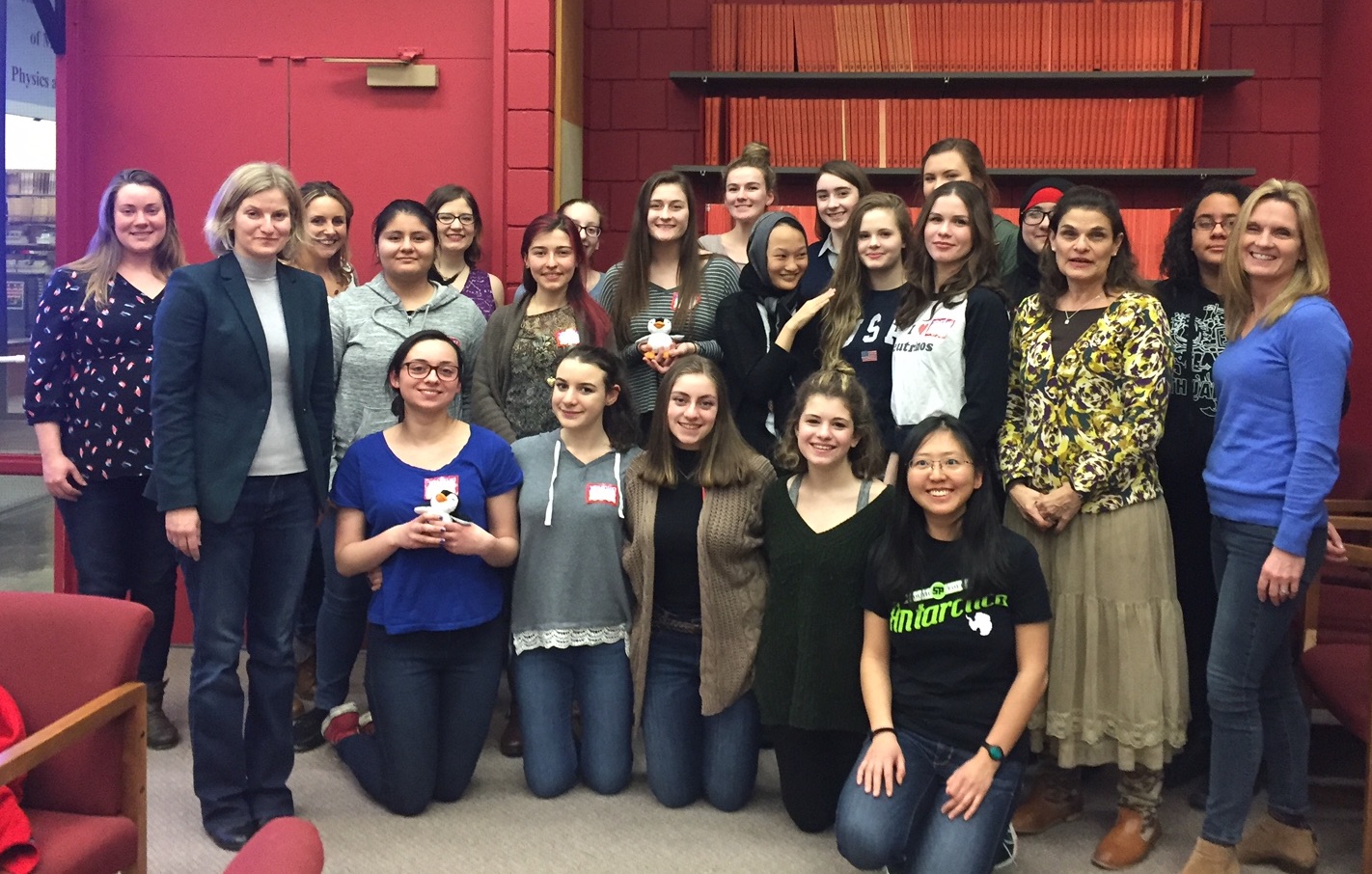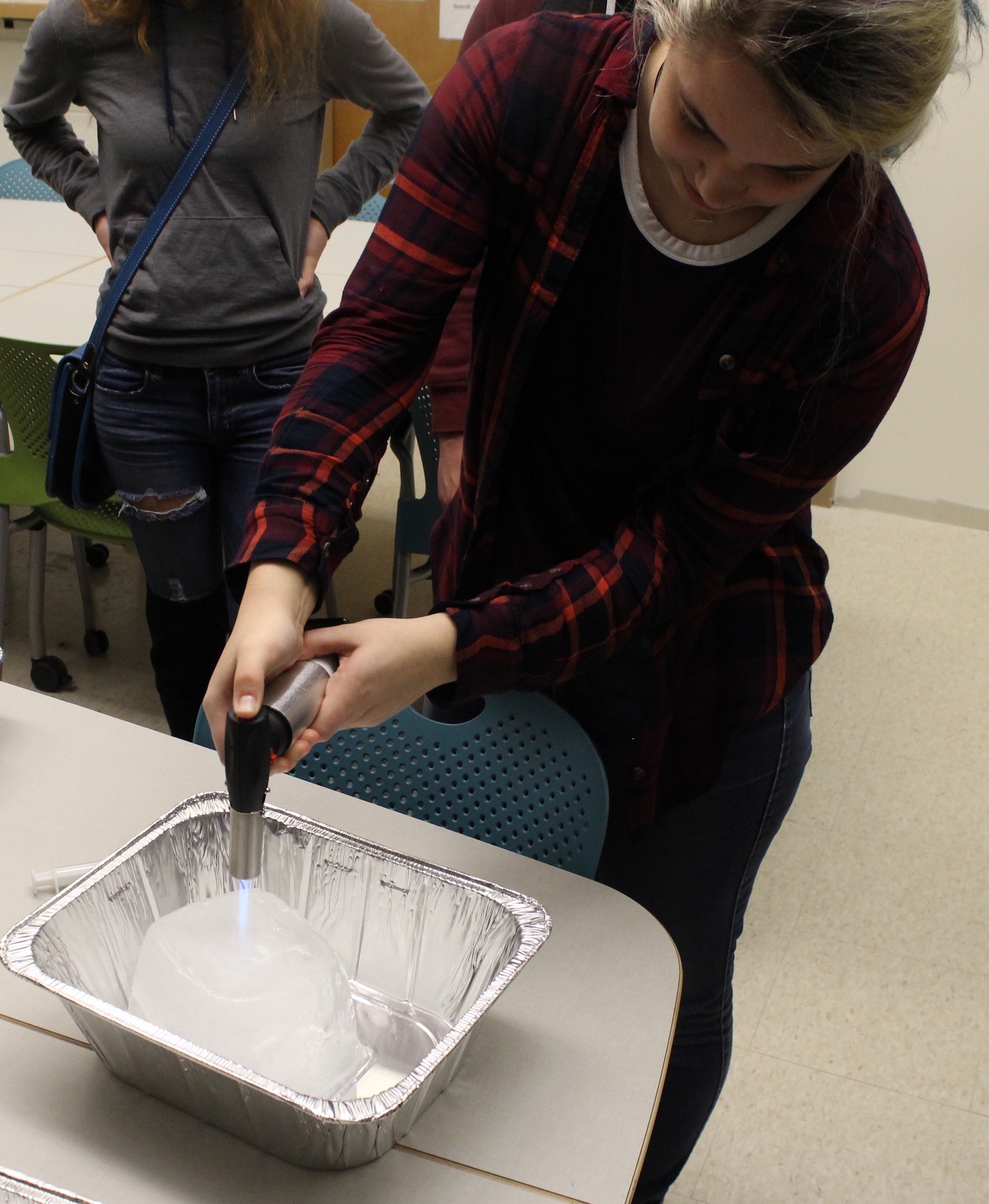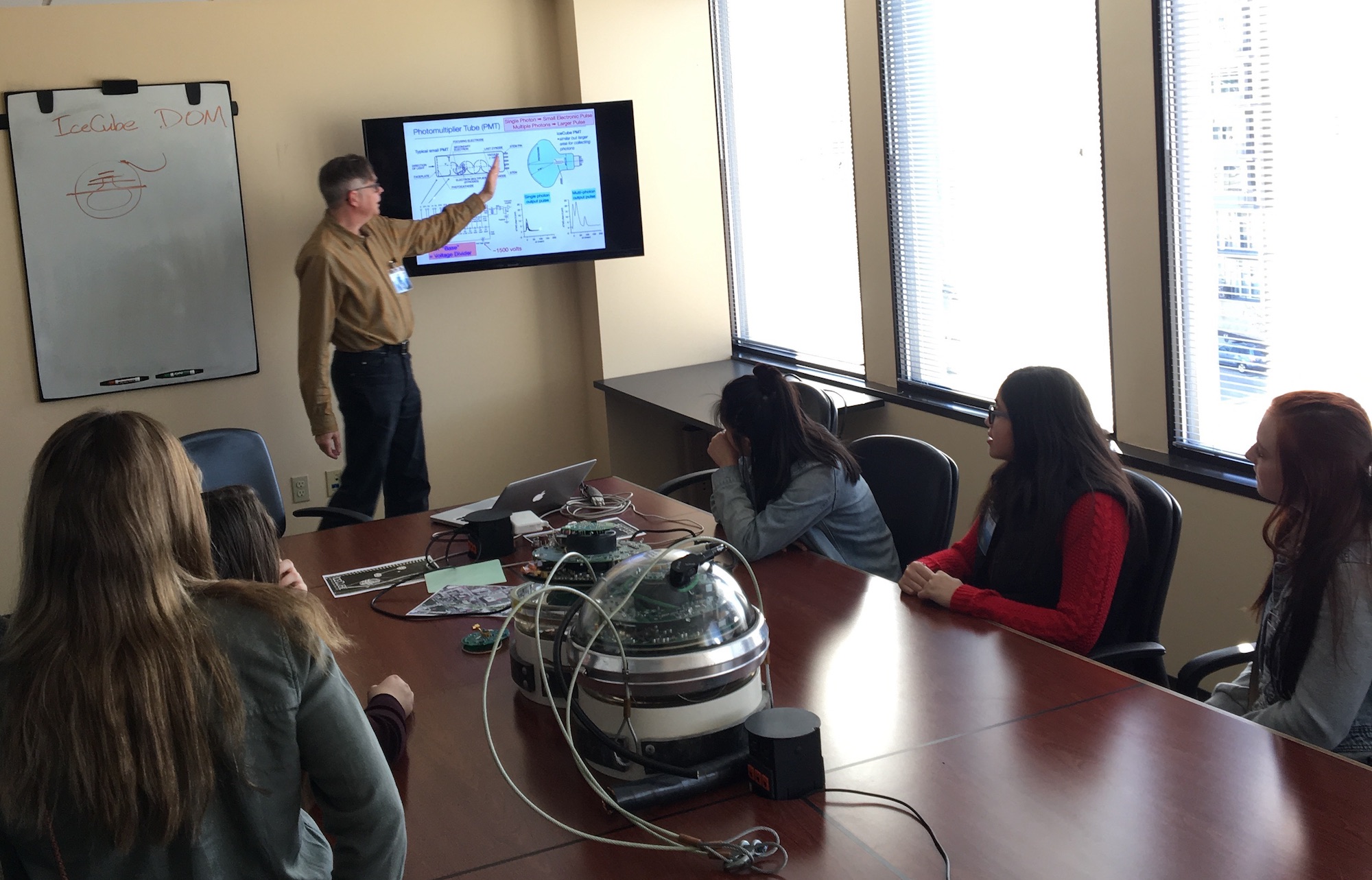
The fourth edition of the IceCube Masterclass hosted over 200 students at 14 institutions in Belgium, Denmark, Germany, and the US. Stony Brook University, which joined the masterclass program for the first time, had a full program for women. The positive interaction with scientists is again one of the things that students value most from this program. The masterclasses were held on March 8, 11 and 22.
Over four editions, more than 700 students and teachers have engaged in a full day of research activities centered around IceCube science. This year, the participation of girls was only around 30%, which is a lower number with respect to previous editions. However, Stony Brook University hosted a masterclass with 14 students, 6 researchers, and 4 teachers—all of them women. University of Rochester, with 10 students form an Upward Bound program, also joined the masterclass program for the first time.

The IceCube Masterclass was created in May 2014 to promote research careers in astrophysics, and more broadly in science, among high school students. Many IceCube institutions use this opportunity to engage with students in their communities and to strengthen connections with physics and astronomy teachers.
The participating institutions can choose to perform two different analyses: the discovery of very high energy astrophysical neutrinos or a measurement of the cosmic-ray energy spectrum. In the past, the replica of the analysis that led to the discovery of astrophysical neutrinos had been the most broadly used, but in this edition almost half of the hosting institutions conducted the cosmic-ray study.
When asked which thing they liked the most about the masterclasses, students in all countries mentioned the opportunity to meet and talk to scientists. Many of the students are grateful for the time and attention that IceCube researchers devoted to them in answering questions, helping them with the activities, or just sharing their experience and interest as researchers. Great job, IceCubers!

Students also liked being able to participate in a variety of activities, from lectures to hands-on experiments and the guided research studies.
These are a few highlights from answers given by the students in their evaluations:
“It’s easier to stay interested in basic level physics when you know it will get interesting later down the road.” – a student in Delaware.
“The one idea I will take with me is that such small things like neutrinos can explain such big things to us.” – a student in Aachen.
“I learned that small particles will probably be the future of exploring the universe.” – a student in Madison.
“I wish there were masterclasses in engineering.” – a student in Stony Brook.

“Make another masterclass next year.” – a student in Copenhagen.
Almost every student that answered the evaluation form said that they would recommend the activity to other students and friends. For them, and for many others to come, we will start preparing the 2018 edition very soon!
